With an emphasis on practical guidance, we aim to equip you with the knowledge needed to navigate sedation dentistry for a loved one with special needs or in your professional practice. IV Sedation dentistry for special needs offers a solution for patients who face challenges with traditional dental care. Patients, caregivers, and healthcare professionals seek information on this subject for its potential to provide a stress-free dental experience for individuals with physical, cognitive, or emotional difficulties. Our article covers essential aspects such as the types of sedation dentistry, safety measures, and the benefits of creating a calm dental environment for those requiring special care.
Special Needs Patients We See for Dental Care at Maryland Sedation Dentist
At Maryland Sedation Dentistry in Burtonsville Maryland, we have 3 certified IV sedation dentists available to treat special needs patients. Contact us today for a consultation.
Maryland Sedation Dentist provides IV sedation dental care for intellectual disability, mental health, autism spectrum disorder, Cerebral Palsy, Muscular Dystrophy, Multiple Sclerosis, Blindness, neurological disorders, behavior problems and many other special needs and disorders. We work with PBAL Group and many other special needs patient facilities in the Baltimore-Washington Metro Areas.
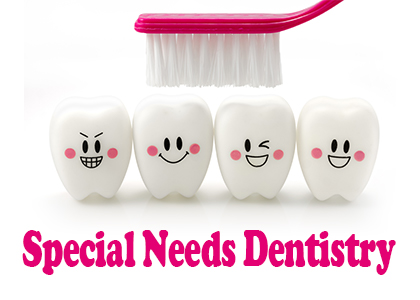
IV Sedation for Special Needs
- Sedation dentistry offers specialized care for special needs patients, encompassing various techniques such as nitrous oxide, oral conscious sedation, and general anesthesia to provide a comfortable and safe dental experience.
- Effective special needs dentistry requires customized communication strategies, accommodations in dental facilities, and interdisciplinary collaboration that includes caregivers and healthcare providers to ensure comprehensive care.
- Accessibility to special needs dental care is hindered by financial, geographical, and logistical barriers, necessitating advocacy for better coverage, improved provider availability, and collaboration between universities and community organizations.
- Special needs population includes Downs Syndrome, Autism, PTSD, medically compromised…

Understanding Sedation Dentistry for Special Needs Patients
IV Sedation Dentistry is the perfect solution for dental care for special needs patients. Providing dental care tailored to the unique circumstances of special needs patients goes beyond a mere service—it signifies a deep commitment to compassion and understanding. Sedation dentistry shines as a beacon of hope for individuals grappling with physical, cognitive, or emotional challenges. This practice marries the expertise of dental professionals with patient-centered care, aiming to guarantee a comfortable and accommodating experience for all who enter a dental office. Whether a patient grapples with anxiety or has difficulty remaining still for extended periods, sedation dentistry is there to bridge the gap between their needs and the pursuit of optimal oral health.
Special health care needs encompass a broad spectrum of conditions, from intellectual and developmental disabilities like autism and Down syndrome to cerebral palsy and Alzheimer’s disease. In California alone, tens of thousands of individuals with such disabilities, including Alzheimer’s disease, require sedation to receive proper dental care—an indication of the profound impact and necessity of sedation dentistry within special needs communities. This extends beyond dental procedures; it’s about improving the quality of life through comprehensive oral health care.

Types of Sedation Used in Special Needs Dentistry
Dental professionals wield a diverse arsenal of sedation techniques to cater to the varying needs of special needs patients. From the gentle lull of nitrous oxide gas to the more profound effects of general anesthesia, each method is selected with the utmost care and tailored to the individual. At PDS Foundation Dentists for Special Needs, for example, patients may be offered a range of options including nitrous oxide, oral conscious sedation, or general anesthesia, ensuring that each person receives the right level of sedation for their unique needs.
Children with special needs, who may find it particularly difficult to relax in a conventional dental setting, benefit immensely from these sedation options. Dental professionals carefully consider each child’s medication, behavior, and comfort level when deciding on the appropriate sedation method, transforming a potentially stressful situation into one of calm and cooperation.
Ensuring Safety During Sedation
In sedation dentistry, patient safety is of utmost importance, beginning with a thorough assessment of each individual’s medical and dental history. Before administering sedation, dental professionals meticulously evaluate patient-specific risks or contraindications to ensure that the chosen sedation method aligns with their health profile and the dental procedure at hand. Sedation is an art that only those with specific qualifications and training, such as sedation dentists or anesthesiologists, can administer, guaranteeing patient comfort and safety throughout the process.
While the patient is under sedation, continuous and vigilant monitoring becomes critical. Equipment like pulse oximeters, blood pressure monitors, and electrocardiograms are employed to keep a close watch on vital signs, ensuring they remain within safe parameters. Moreover, dental offices are equipped with emergency protocols and staff trained in advanced life support, ready to address any potential complications swiftly and efficiently.
Benefits of IV Sedation for Special Health Care Needs
The calming effect of IV sedation in dentistry for special needs patients is significantly beneficial. It acts as a tranquil oasis, reducing anxiety and creating a serene environment conducive to dental care. For individuals with mental, physical, sensory, developmental, or cognitive impairments, the calming effects of sedation can make all the difference, transforming the dental chair from a source of distress to a space of relaxation.
The benefits of this approach extend beyond the walls of the dental office. By reducing the stress associated with dental procedures, sedation helps foster a sustainable oral health care routine for special needs patients. It enables them to receive the treatment they need without the fear or discomfort that might otherwise deter them from regular dental visits.
Tailoring Dental Care to Individual Needs
Every individual has a story, a set of experiences that shape their view of the world—this is no less true for special needs patients stepping into a dental practice. Customizing dental care to individual needs is a complex task that includes both the physical adaptations of the dental office and the personalized interaction between the patient and the dental team. At the Personalized Care Suite at Penn Dental Medicine, for instance, advanced technology and thoughtful design come together to create an environment where comfort meets quality care.
Personalized treatment plans, developed through consultation and understanding of each patient’s unique needs, serve as the cornerstone of effective dental care for special needs individuals. Pediatric dentists, in particular, receive specialized training to craft environments that are safe and comfortable, employing proven techniques like desensitization and acclimation to ease patients into the dental experience.
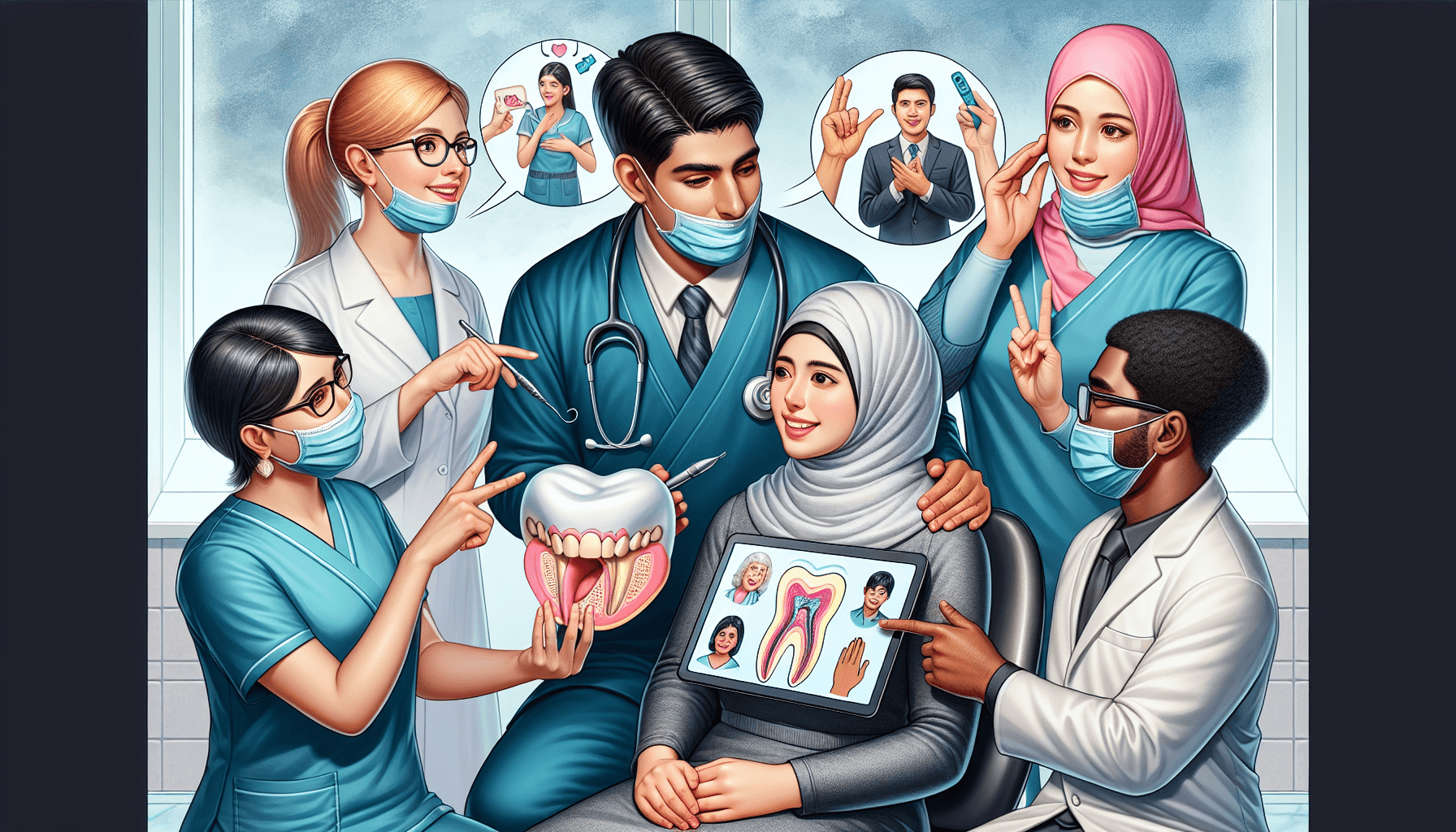
Communication Strategies for Effective Treatment
In the realm of special needs dentistry, communication serves as the connecting bridge between dental professionals and patients, playing a crucial role in delivering all-encompassing care. Visual aids, demonstrations, and models are invaluable tools that help convey complex concepts and instructions in an accessible manner. Such resources empower special needs patients to grasp the nuances of their dental treatment, ensuring that they are active participants in their own oral health care journey.
The adaptation of communication methods to suit each patient’s preferences is an art in its own right. From communication boards to specialized apps, these tailored solutions enhance the treatment experience for those with special needs. Moreover, when patients and their caregivers communicate special requests—like the need for an interpreter or accommodations for a guide dog—ahead of time, it allows the dental team to prepare adequately, ensuring a smooth and personalized visit.
Active listening and empathy are also integral to building trust with patients, creating a foundation for successful interactions and treatments.
Accommodations in the Dental Office
Imagine a dental office designed with every patient in mind. Wheelchair accessibility, quiet rooms with low lighting, and hover chairs that glide effortlessly across the floor—these are just a few of the accommodations that exemplify the commitment to inclusivity in dental care for those with special needs.
The Eastman Institute for Oral Health, for example, provides accessible treatment rooms specifically for patients with severe medical conditions, ensuring that everyone has the opportunity to receive oral health care. Additionally, sensory accommodations such as noise-canceling headphones or weighted blankets cater to patients who may be sensitive to sound or require additional sensory input to feel secure during dental procedures.
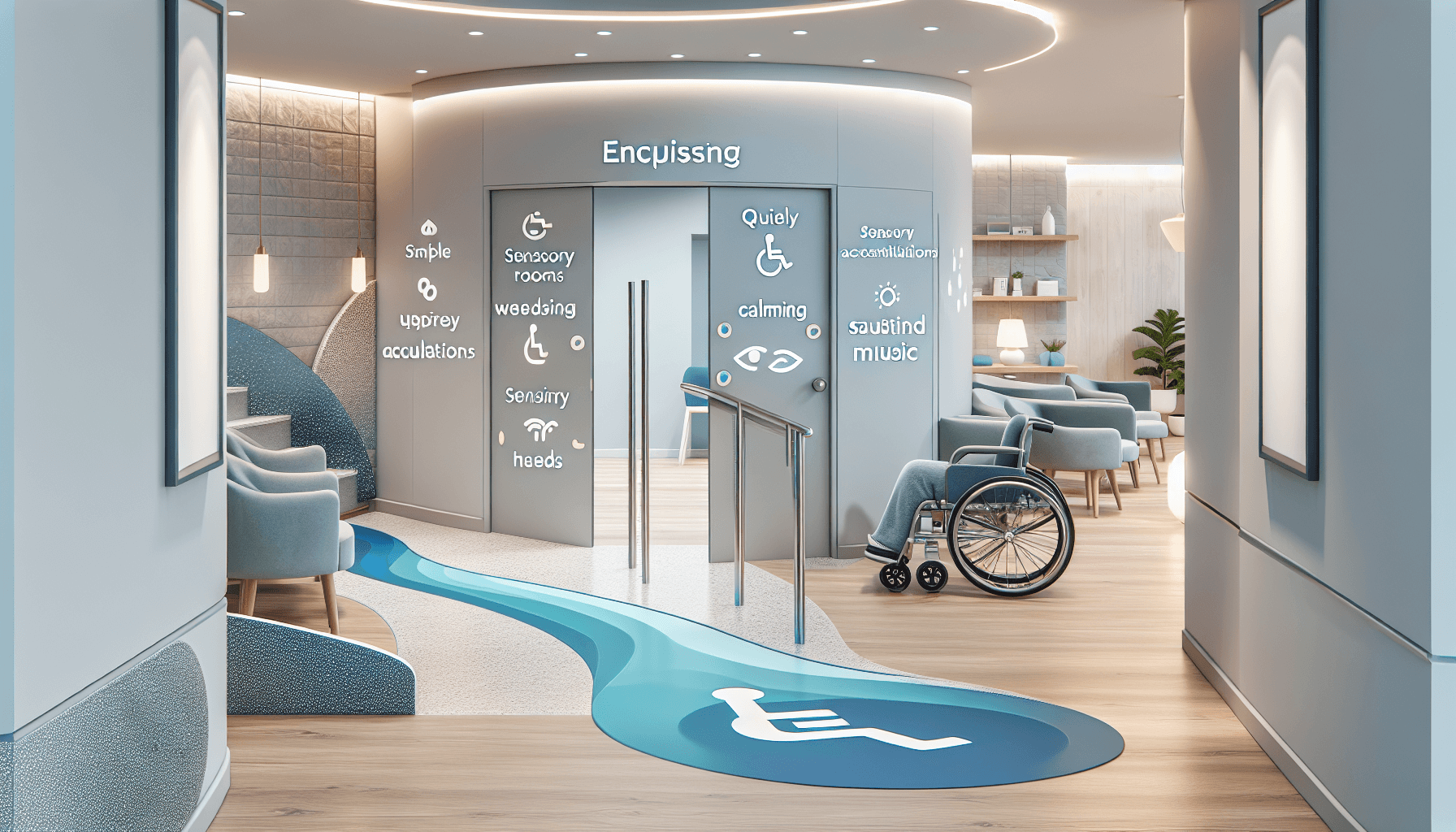
Dentists who specialize in caring for patients with special needs are not just providers of dental care—they are orchestrators of a symphony that harmonizes the various aspects of comprehensive care. With over 150 years of combined experience, the team at Disability Dental Services exemplifies the depth of expertise and dedication required in this specialized field. These specially trained professionals collaborate within interdisciplinary care teams, ensuring that each patient’s dental and overall health needs are met with the highest standards of care.
Innovative techniques, such as those employed by dentists like Richard Kunihira, who uses desensitization strategies to reduce the need for sedation, are a testament to the evolving nature of special needs dentistry. These advances underscore the critical role of special needs dentists in enhancing the dental office experience and teaching home care practices that support lifelong oral health.
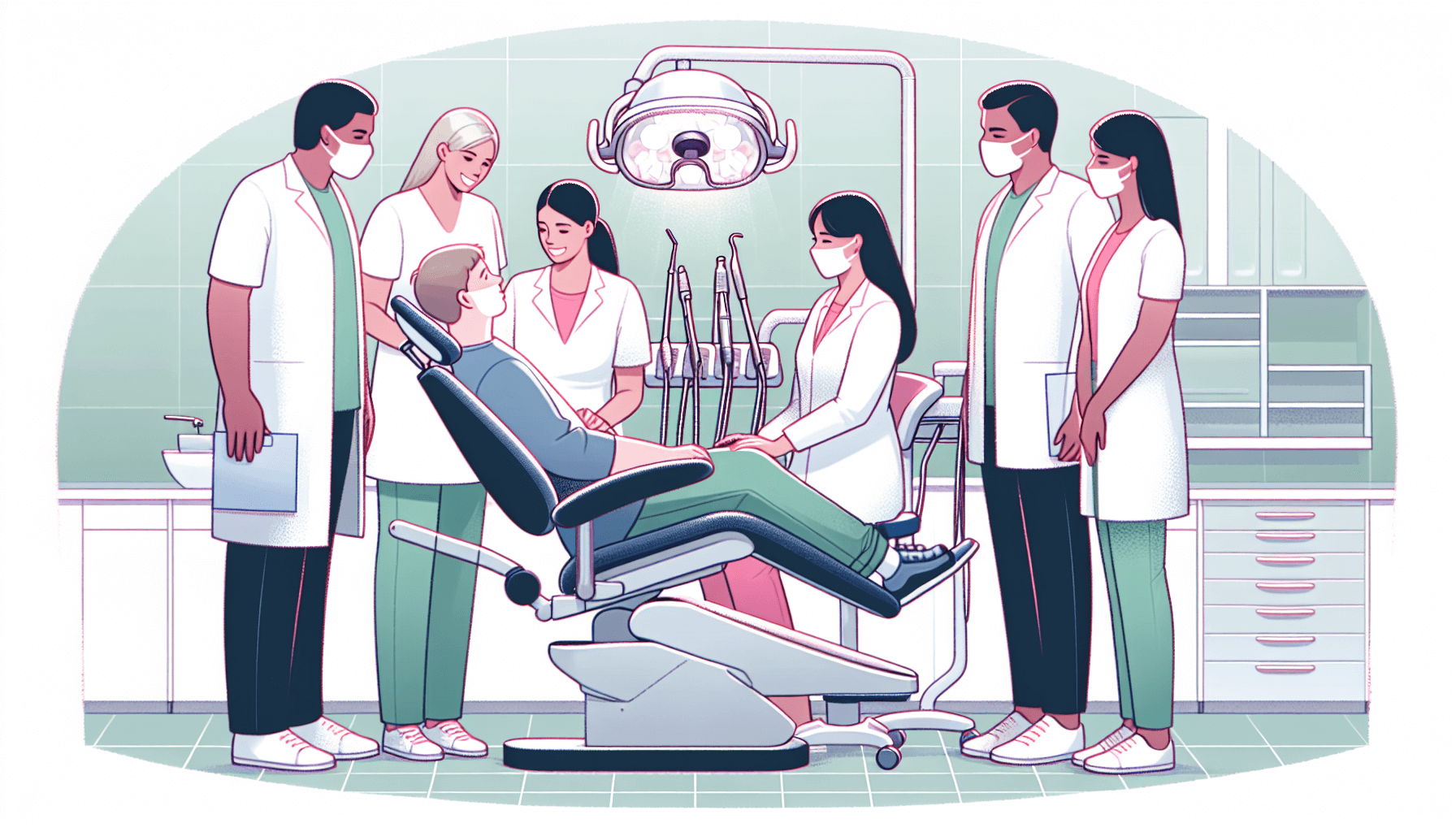
Expertise in Hospital Dentistry and Clinic-Based Care
The realm of hospital dentistry and clinic-based care requires a unique set of skills and an integrated approach to treatment. The University of Rochester Medical Center stands as a model for this kind of collaborative care, where medical and dental professionals work hand-in-hand to address the complex needs of patients with special needs. This synergy between disciplines ensures that patients receive the most comprehensive and cohesive care possible, tailored to their specific health requirements.
Special needs dentists are adept at navigating the nuances of both hospital settings and private practices, providing a continuity of care that is both efficient and empathetic. Through their expertise, they are able to offer a range of dental procedures with the assurance that each patient’s unique circumstances are taken into account, resulting in a positive and effective dental care experience.
Collaboration with Caregivers and Other Health Providers
The tapestry of care for special needs patients is woven with the threads of collaboration between dentists, caregivers, and other healthcare providers. Caregivers, who often have the deepest understanding of a patient’s daily life and needs, play a pivotal role in facilitating communication with dental professionals. This partnership is essential for understanding the patient’s unique situation and for providing individualized care that considers all aspects of their well-being.
Maintaining open lines of communication with other healthcare providers is also fundamental to delivering thorough and optimal dental care. By sharing insights and coordinating treatment plans, dental professionals can ensure that the oral health care provided aligns with the patient’s overall health strategy and supports their long-term health goals.
Preparing for Your Visit to a Special Needs Dentist
For a special needs patient, a visit to the dentist can be a significant event, hence preparation becomes key to its success. Understanding the logistics and gathering the necessary information beforehand can help ensure that the visit is as smooth and stress-free as possible. An initial screening appointment is often the first step, allowing the dental team to understand the patient’s needs and determine the best course of action for their treatment. Additionally, providing a comprehensive medical history to the dentist is key to achieving the best outcomes and ensuring that all health factors are considered during dental treatments.
Scheduling is another important aspect to consider. Special needs patients may have specific preferences or routines that are vital to their well-being, and these should be taken into account when arranging dental appointments. For patients who may tire easily or require particular timing for their visits, accommodating these preferences can make a significant difference in their comfort and the effectiveness of the dental care provided.

What to Bring to Your Appointment
On the day of the dental appointment, having necessary documentation at hand is vital for a secure and customized sedation experience. This includes:
- A detailed medical and dental history
- A list of current medications
- Any known allergies
- Information on previous surgeries and hospitalizations
Such thorough documentation enables the dental team to tailor the sedation and dental procedures to the patient’s specific health profile.
Patients will also receive detailed instructions regarding pre-sedation preparation, postoperative care, and an explanation of the potential risks associated with sedation. Reviewing these materials before the procedure can help patients and their caregivers understand what to expect and how to best support the patient’s recovery and ongoing oral health care.
Scheduling and Insurance Considerations
Although managing the financial aspects of dental care for special needs patients can be intricate, with proper information and planning, it becomes manageable. In some cases, patients who are eligible for benefits or have a low income may be able to receive sedation dentistry services free of charge under systems like the National Health Service (NHS) after completing the necessary forms.
To avoid any confusion and manage expectations, it’s recommended that patients request a clear treatment plan and an estimate of charges during their initial check-up. This proactive step can help in planning for any financial responsibilities associated with the dental care provided.
Advancing Access to Special Needs Dental Care
Despite advancements in special needs dentistry, accessing dental care still poses a challenge for many among the 61 million plus people in the United States living with cognitive, developmental, or physical disabilities. From long waiting lists to financial constraints and geographical barriers, these obstacles can prevent special needs individuals from receiving the dental care they require. The closure of oral health safety net providers in New York, for example, led to a significant reduction in services available for patients with intellectual, developmental, and medically complex conditions, highlighting the pressing need for better access to dental care for these populations.
Recognizing these issues, institutions like the Eastman Institute for Oral Health have formed taskforces to recommend strategies for increasing the number of skilled dental care providers for patients with special needs. Advancing access to dental care for individuals with disabilities is not just a matter of expanding provider availability; it also involves addressing financial barriers and ensuring that quality care is within reach for all who need it.
University and Community Collaborations
The field of special needs dental care benefits immensely from the joint efforts of universities and community organizations. Dental schools are pivotal in shaping the next generation of dental professionals, instilling in them the skills and compassion necessary to cater to the needs of special needs patients. Programs like those at Penn Dental Medicine and the UF College of Dentistry integrate specialized clinics and community dentistry into their curriculum, providing student dentists with hands-on experience in caring for individuals with disabilities.
Furthermore, the impact of these collaborations extends beyond the classroom walls, as seen with the UF College of Dentistry’s active participation in local and statewide clinics. These partnerships not only enhance the training of dental professionals but also directly benefit underserved communities by bringing necessary dental care to those who might otherwise go without. Training grants and initiatives, such as those from the Health Resources and Services Administration to EIOH, have notably increased access to dental care for nearly 700 special needs individuals, showcasing the tangible results of these collaborative efforts.
Advocating for Better Coverage and Support
Advocacy holds a crucial role in reshaping the field of special needs dental care. Despite advancements in the field, insurance coverage gaps remain a significant barrier for many seeking sedation dentistry. Recent legislative efforts are aiming to mandate that insurance companies provide coverage for anesthesia and sedation for special needs dental patients, a step that could drastically improve access to necessary care. States considering bills that would oblige private insurance companies to cover dental care under general anesthesia for patients with special needs are answering the call for change, spurred on by the efforts of advocacy groups and policymakers alike.
Training programs are being developed to equip dentists with the skills necessary to provide sedation dentistry to patients with special needs, ensuring a workforce capable of meeting these unique demands. Partnerships between dental schools and non-profit organizations are facilitating an increase in the number of dental providers trained to treat patients with special needs. These efforts, combined with initiatives like grant-funded programs, are paving the way for improved access to quality dental care for special needs individuals, fulfilling a commitment to a community that deserves nothing less.
Summary
As we reflect on the compassionate world of sedation dentistry for special needs patients, it’s clear that this field represents more than just dental care—it’s a dedication to inclusivity, empathy, and the pursuit of health equity. From the meticulous planning of sedation methods to the specialized training of dental professionals and the advocacy for better insurance coverage, every element contributes to a healthcare landscape that is as nurturing as it is comprehensive.
This blog post has explored the various facets of sedation dentistry for special needs patients, emphasizing the importance of safety, communication, and tailored care. We’ve highlighted the collaborative efforts of dental professionals, caregivers, and community partners in advancing access to dental care for those with special needs. Let us carry forward the message that every individual, regardless of their unique challenges, deserves to experience the benefits of quality dental care in a supportive and understanding environment.
Frequently Asked Questions
In special needs dentistry, various sedation methods such as nitrous oxide, oral sedatives, IV sedation, and general anesthesia are utilized, customized to meet each patient’s specific requirements.
Dental professionals ensure safety during sedation by conducting thorough assessments, ensuring proper qualifications and training, and closely monitoring the patient’s vital signs throughout the procedure. This guarantees a secure sedation process for patients.
Yes, special needs patients can receive dental care adapted to their individual needs through personalized accommodations and adjustments offered by dental offices.
When scheduling a visit to a special needs dentist, it’s important to consider the patient’s preferences and routines to ensure their comfort and well-being. This can help make the visit more successful and positive for the patient.
Collaborations between universities and communities to train dental professionals, advocacy for improved insurance coverage, and legislative efforts for sedation and anesthesia coverage are being made to improve access to special needs dental care. This will help ensure that individuals with special needs receive the dental care they require.
 2918 Spencerville Rd, #124Burtonsville, MD 20866
2918 Spencerville Rd, #124Burtonsville, MD 20866  (301) 421 1118
(301) 421 1118 
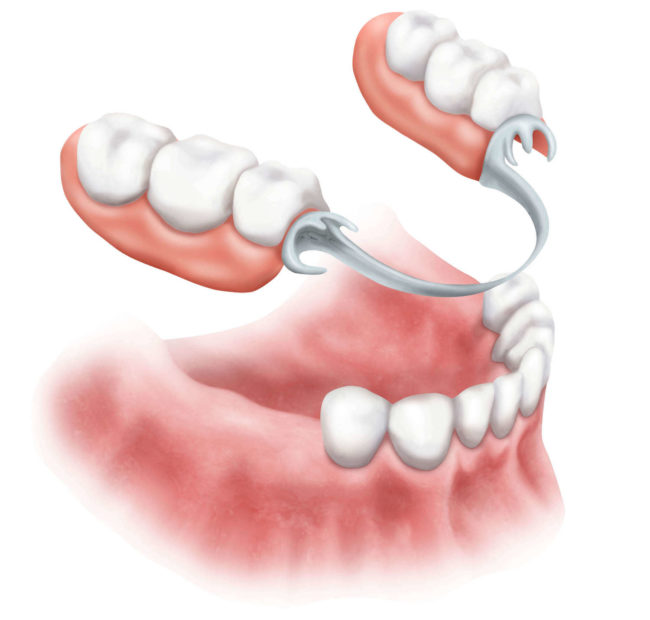
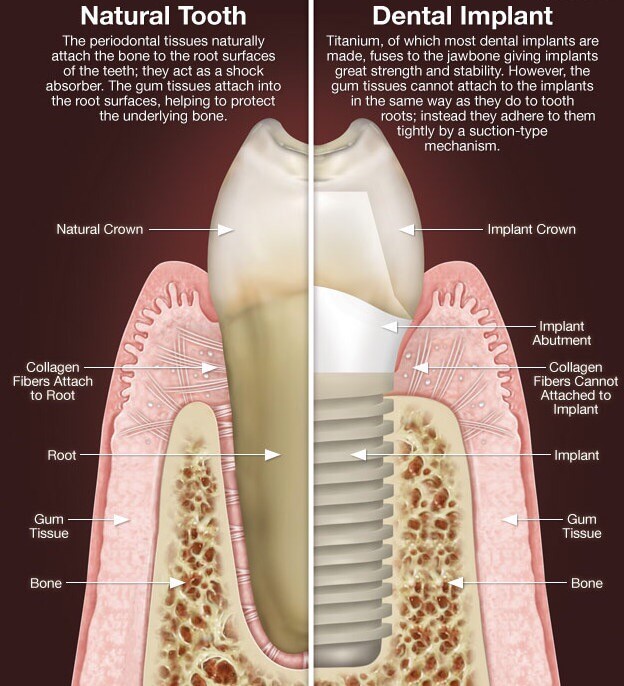
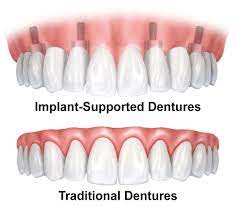
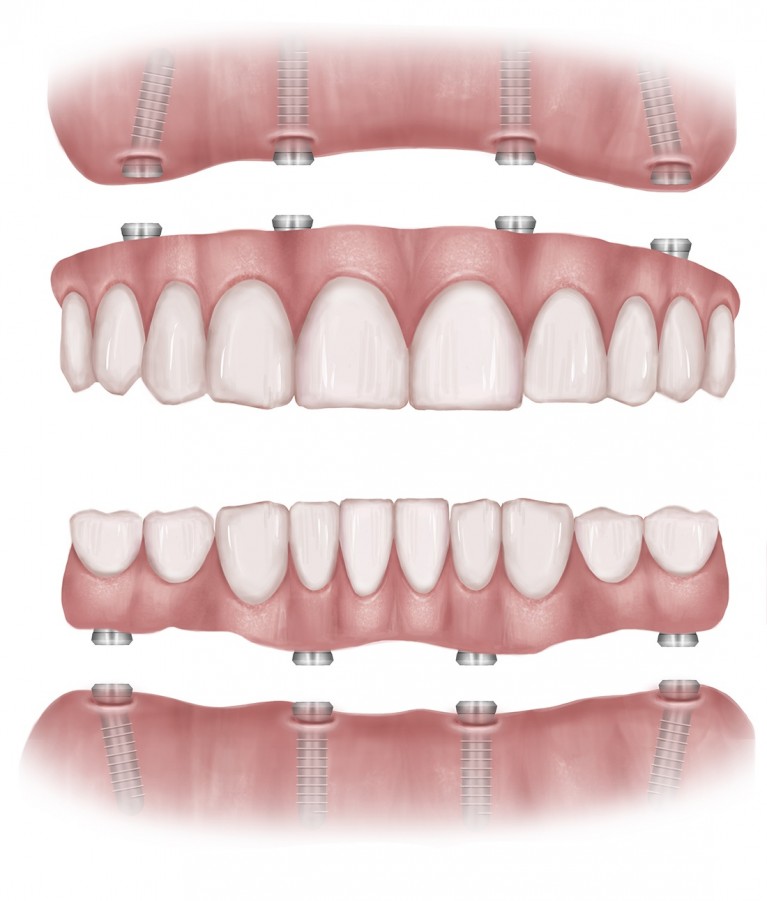
0 Comments
No comments yet. Be the first to comment!
Comments are closed.